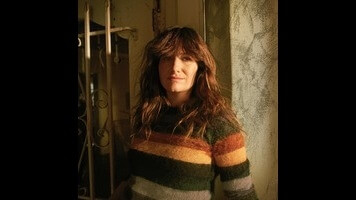I Love Dick is long on inventiveness, short on easy answers

In this age where TV is supposedly at some sort of “peak,” shows keep challenging the notions of what television is. I Love Dick does so perhaps more than any other series currently on the air. Like the unconventional text by Chris Kraus on which it is based, Jill Soloway and Sarah Gubbins’ new series defies categorization. Its episodes hover around a half-hour, but it’s certainly not a traditional comedy. However, it also isn’t one of those moody family sagas laced with humor like Soloway’s other Amazon project, Transparent. It takes place in the world of academia and is academic in its interests. It name drops modern artists as if they were pop stars. It’s a serialized narrative and something that feels unmoored from traditional storytelling. It’s isolating and strange and very, very female. It’s not for everyone, but everyone should give it a try.
Ultimately, the story I Love Dick tells is simple. The fictionalized Chris (Kathryn Hahn) travels with her husband Sylvere (Griffin Dunne) to Marfa, Texas where he has a fellowship at an art institute run by Dick Jarrett (Kevin Bacon). Dick is a cowboy artist known for his oversized, phallic, concrete sculptures, who carries himself with an air of condescension. As soon as Chris encounters him, she is captivated. She channels her lust into writing letters addressed to him, and obsession ultimately become a creative exercise—one that nonetheless has real-world repercussions. Sylvere—first intrigued by the project as a means to reinvigorate his own sexual connection with his wife—soon fears being emasculated. Dick, when word gets to him, is outraged. The young students and employees of the institute watch Chris in horror and secondhand embarrassment, while also finding inspiration in her expression of desire.
All this takes place amid the alluring backdrop of Marfa itself. Visually, the desert town is painted in the spirit Georgia O’Keeffe, stunning in its vastness. But there’s also a complex dynamic at play. Thanks to the presence of art-world denizens—like Sylvere and Chris—Marfa is trendy, but there’s an insidiousness to the privilege of that cultural tourism that butts up against the town’s full-time residents. That dichotomy hovers over I Love Dick. It’s addressed at times, but that’s the element of the show that feels least explored. It is not its primary interest.
That interest, largely, is Chris and the women she influences with her behavior. Hahn and Soloway have long been excellent collaborators—Hahn’s Rabbi Raquel on Transparent is an affecting creation—and I Love Dick is no exception. Here, however, she is a wondrous mix of physical and verbal. The “Dear Dick” of her voice-over is confrontational, while her body language is confused—like someone unable to contain their soul within their skin. The act of touching—and the longing for touch—is a motif, and Hahn makes you feel every moment. An almost tangible physicality is also present in the work of Roberta Colindrez as Devon, a Marfa native who does work for the institute while pursuing her own artistic endeavors, and India Menuez, a fellow with a provocative interest in the study of hardcore pornography. All these women—as well as Lily Mojekwu, who is excellent even if her character is the most underdeveloped—get an incredible showcase in the fifth episode titled “A Short History Of Weird Girls” in which they deliver monologues about their sexual awakenings. The installment, which can stand alone as potent testimony, is written by playwrights Annie Baker and Heidi Schreck, the former of whom is a Pulitzer Prize winner. (Acclaimed filmmakers Kimberly Peirce and Andrea Arnold direct episodes as well. The collection of talent involved is stunning.)
As for the men, Dunne gets to play the part female actors have had to endure for many years—the put-upon spouse—and yet he must color that with the resentment of a man who knows he’s in that position. On top of that, Dunne manages to infuse genuine love into his portrayal. And then there’s Dick, who largely exists in the action as symbol. Bacon is comfortable with this, and he calibrates his performance delicately, so when we do start to find out who Dick really is, it’s surprising and earned.
Writing about I Love Dick’s virtues runs the risk of sounding pedantic. But the show is often funny and generally entertaining. If you try to study it it can feel elusive, like you need an education in gender studies or art history to appreciate it. But watch it for the actors, story, and cinematography, and you can binge it like any other show.